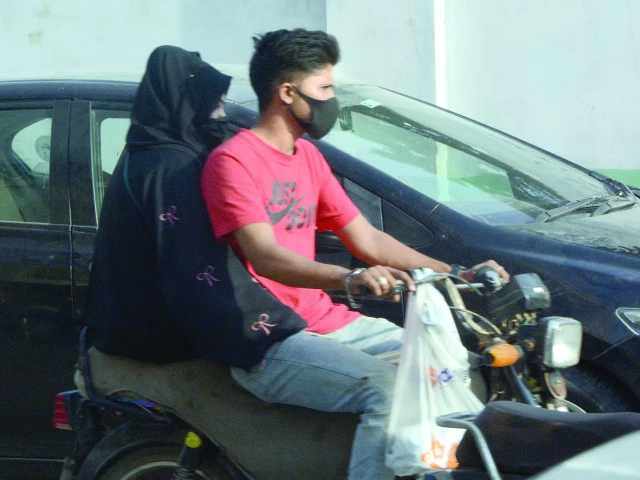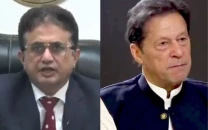Deteriorating air quality chokes Karachi
With high vehicular emissions and industrial pollution, the metropolis has fallen under a blanket of deadly air

Although the arrival of autumn has become synonymous with the smog season in much of Punjab and Khyber-Pakhtunkhwa, little attention is paid to the quality of air in the industrial hub of the country, where high vehicle and industrial emissions have polluted the atmosphere.
Air pollution in Karachi has become such a serious issue that even the Auditor General of Pakistan (AGP) has expressed deep concern over the city's worsening air quality in a recent environmental report. The AGP has urged the Sindh Environmental Protection Agency (SEPA) to establish a monitoring network in Karachi to track air quality, particularly PM10, PM2.5, SO?, and NO? levels and to take necessary measures to reduce the emission of toxic chemicals.
In the report, the AGP stated that SEPA should register all industrial units operating in Karachi and build a comprehensive database on them. Furthermore, pollution charges should be imposed on industries contributing to environmental degradation, and specific rules should be formulated for this purpose.
According to environmental activist Afaq Bhatti, one of the major causes of air pollution in Karachi is vehicle emissions since with the city's rapid urban expansion, the number of vehicles including buses, trucks, motorcycles, and cars has skyrocketed. Many of these vehicles are old models lacking proper emission controls, worsening the pollution problem.
"Industrial pollution is another major concern. Karachi hosts numerous factories and industrial zones, many of which do not comply with environmental regulations and release harmful chemicals and particulates into the air. Ongoing construction projects across the city also contribute to poor air quality, mainly due to dust and particulate matter (PM10 and PM2.5) generated during construction," said Bhatti who further noted that open garbage burning, which is common in Karachi, too released toxic chemicals and particles into the air.
Meanwhile, Muttahida Qaumi Movement (Pakistan) Deputy Parliamentary Leader in the Sindh Assembly, Taha Ahmed Khan, emphasized that air pollution in Karachi had reached dangerous levels, causing widespread illnesses. Khan recently wrote a letter to Sindh Chief Minister Syed Murad Ali Shah, urging immediate administrative action to curb the city's worsening air pollution, which he described as a serious public health crisis affecting millions of residents.
In his letter, Khan expressed deep concern over the deteriorating air quality across Sindh, particularly in Karachi, and cited data from AirGradient's Karachi Map and Linked Things AI, both recognized for their scientifically validated air monitoring platforms.
According to the data, PM2.5 levels in Karachi often exceed 150 micrograms per cubic meter (µg/m³) - six times higher than the World Health Organization (WHO)'s safe limit of 25 µg/m³. In some areas, levels have even surpassed 200 µg/m³, making Karachi one of the most polluted major cities in the world.
"Prolonged exposure to such high pollution levels increases the risk of respiratory diseases, heart problems, and reduced life expectancy, with the worst effects seen in low-income neighborhoods and informal settlements where healthcare facilities are already inadequate," noted Khan.
Khan urged the Sindh government to immediately adopt a comprehensive "Clean Air and Electric Vehicles Policy", including zoning restrictions for high-emission vehicles and industrial areas, expansion of electric public transport systems in Karachi and Hyderabad, incentives for promoting electric vehicles and renewable energy integration, alongside the strengthening of urban tree plantation and mangrove restoration programs.




















COMMENTS
Comments are moderated and generally will be posted if they are on-topic and not abusive.
For more information, please see our Comments FAQ